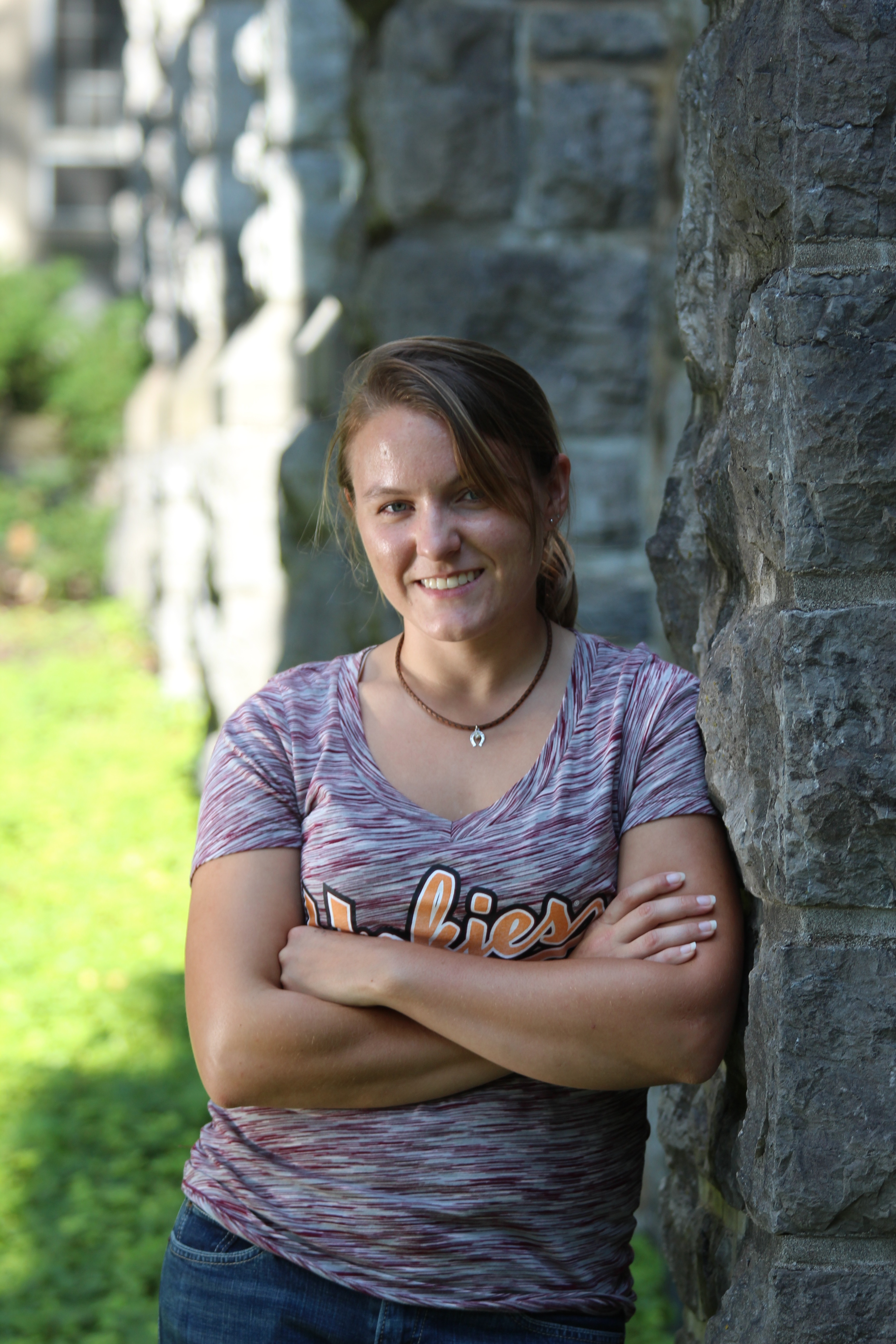First Year Experiences: Diversity of courses in College of Agriculture and Life Sciences broadens horizons

Kalynn Harlow of Rocky Mount, Va., a sophomore majoring in animal and poultry sciences, had her focus limited to thinking about the goat for its meat- and milk-producing capacities.
Harlow was in a First Year Experiences class in the College of Agriculture and Life Sciences that involved a group presentation about harvesting goat milk. But, by being in a class filled with so many different students from various majors in her college, she began to think about much more than just harvesting milk — she thought about the economics of farming, about growing forage, and the distribution of milk.
“It gave me a broader view,” said Harlow.“The class was a great introduction to the college and we got to see that there are other things like turf grass management and health and human services out there.”
That multidisciplinary philosophy of the college’s First Year Experiences program has even spilled out of the classroom for Harlow.
“In particular in my residence hall on campus we have engineers and human health majors and it’s always nice to see different perspectives. I always find that kind of refreshing,” she said.
The Office of First Year Experiences was established in 2009 to improve the critical first year of academic life for freshman and transfer students at Virginia Tech. The College of Agriculture and Life Sciences First Year Seminar is a collaborative project across several units within the college, including Human Nutrition, Foods and Exercise, Agricultural and Extension Education, Animal and Poultry Sciences, Crop and Soil Environmental Science, and Food Science and Technology.
“We are proud of the fact the First Year Experiences fosters interest in students’ individual courses of study,” said Susan Sumner, associate dean and director of academic programs. “The initiative is also a great resource on a grand scale for freshman and transfer students to get a good overview of the college’s diverse course offerings beyond their specific focus. It also allows us to tailor events to major-specific activities and areas of interest to students.”
One First Year Experiences class, Introduction to Biochemistry, helped Mathew Munson of Landenberg, Pa., a sophomore majoring in biochemistry, cement his desire to obtain a degree in the subject.
“It confirmed biochemistry is the major I should be pursuing and gave me a good picture of what my next four years would consist of,” said Munson.
In his course, he met in large groups every few weeks and with peer mentors in smaller groups after the meetings. Throughout the course guest lecturers visited students.
“They put a face to your future career and showed us what we could achieve by pursuing this academic path,” he said.
Anna Moh of Burke, Va., also a sophomore in biochemistry, found the guest speakers to be informative and helpful in terms of broadening her perspective regarding potential career options.
Moh spent the summer researching virology in the microbiology department at the California Academy of Sciences in San Francisco where she examined dengue fever and the biochemical mechanisms that cause its epidemic turnovers.
“The portion of the class that helped to inform my career goals consisted of the guest speakers," said Moh. “It was very informative to see the different walks of life biochemistry has to offer, ranging from hands-on extension services to research to corporate work.”
The defining thread for all the students of the First Year Experiences classes is that focus on one major does not necessarily exclude the broader academic picture.








